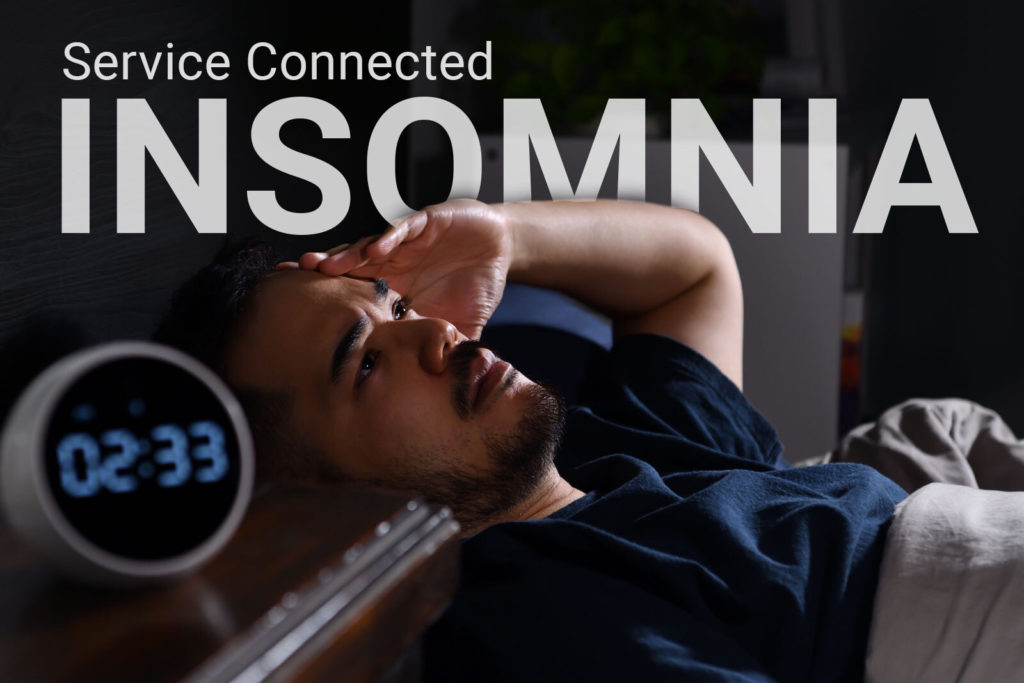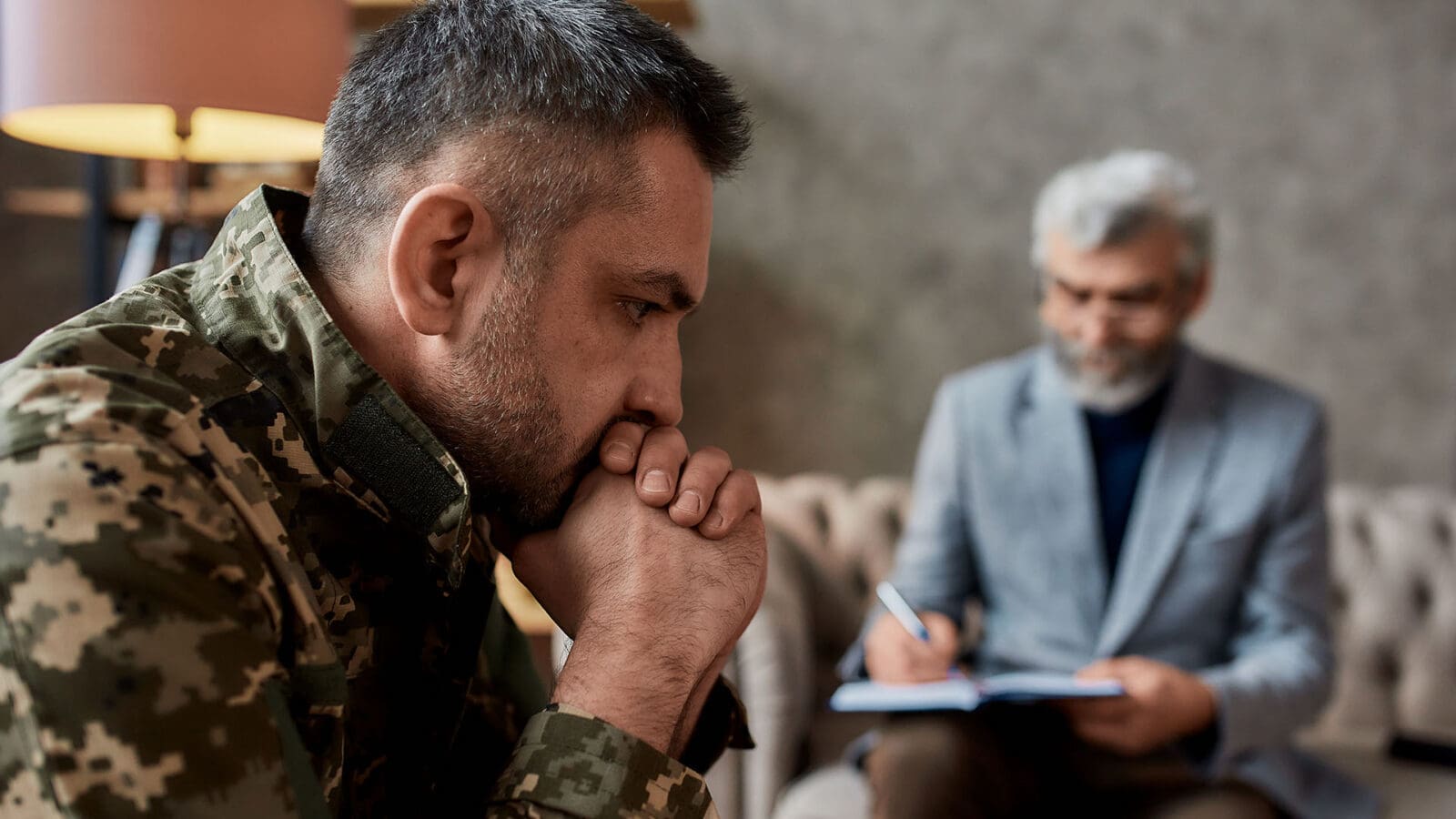Insomnia VA Rating

Understanding Sleep Struggles in Veterans
When the battlefield follows you home, sleep becomes more than rest – it’s an elusive necessity. For veterans struggling with insomnia, getting the proper VA rating isn’t just about benefits; it’s about recognition of a real and debilitating condition that often goes misunderstood.
The Combat-Sleep Connection
When Hypervigilance Becomes Second Nature
In combat zones, staying alert means staying alive—every sound matters. Every shadow could be significant. Your brain learns that sleep equals vulnerability. But what happens when those survival instincts follow you home?
Active Duty Impact
- Irregular sleep schedules
- A constant state of alertness
- Environmental stressors
- Disrupted circadian rhythms
- Chronic stress exposure
PTSD and Sleep: A Complex Battle
When Your Mind Won’t Stand Down
For veterans of asymmetrical warfare, the unpredictability of combat creates unique sleep challenges:
- No clear frontlines
- Constant threat awareness
- Civilian threat uncertainty
- Random attack patterns
- Trust issues affecting rest
These experiences don’t just disappear when you come home. They reshape how your brain approaches sleep itself.
Understanding VA Ratings
Navigating the System
The VA rates insomnia based on severity and impact:
Rating Levels
- 0% – Mild symptoms, no occupational impact
- 10% – Mild occupational impact
- 30% – Moderate occupational and social impact
- 50% – Serious impairment
- 70% – Severe impairment
- 100% – Total occupational and social impairment
Sleep Recovery: Veteran Focused
Supporting Those Who Served
Sleep Recovery understands the unique challenges veterans face. Their program offers:
Specialized Treatment
- Combat-aware protocols
- PTSD-sensitive approaches
- Hypervigilance management
- Trigger-conscious environment
- Military experience understanding
The 30-session program helps veterans transition from combat-mode sleep patterns to healthy civilian rest.
The Science of Healing
Targeting PTSD at Its Source
When we talk about PTSD and sleep, we’re talking about an overactive threat response system. That heightened alertness? It’s coming from deep in your brain, specifically the limbic system and amygdala – your brain’s alarm center.
Think of it like a security system stuck on high alert. Even in safe environments, it’s still broadcasting danger signals. This shows up as elevated alpha waves – basically, your brain’s way of staying on guard duty 24/7.
Sleep Recovery’s Alpha Theta neurofeedback directly addresses this:
Deep Brain Calming
- Reduces trigger-spiking, high-alpha amplitude
- Calms overactive threat response
- Retrains limbic system patterns
- Restores natural sleep cycles
- Builds new neural pathways
How It Works
- Real-time brain wave monitoring
- Specific targeting of deep brain structures
- Gradual threat response reduction
- Natural sleep pattern restoration
- Lasting pattern changes
For veterans, this means:
- Reduced hypervigilance
- Easier sleep onset
- Fewer night terrors
- Better sleep quality
- Improved daytime function
The process is gentle but powerful. As your brain learns to reduce that high alpha activity, sleep becomes possible again—not just any sleep—but real, restorative rest where your mind finally understands it’s off duty.
Most veterans see significant changes within 4-6 sessions. The complete 30-session program allows time for these new patterns to become permanent, helping you transition from combat mode to healthy civilian sleep.

Personal Stories
Meet James, a Marine Corps veteran: “Coming back from Afghanistan, every noise was a threat. Sleep wasn’t rest – it was vulnerability. Sleep Recovery got it. They understood why I needed to face the door and why certain sounds triggered me. Through Alpha Theta neurofeedback, they helped me find peace again.”
Sarah, an Army veteran, shares: “Three tours in Iraq left me unable to sleep without checking the perimeter multiple times. The home-based treatment meant I could work on sleep in an environment I’d already secured. After only six sessions, I started sleeping through the night without constant threat scanning.”
Civilian Transition
Building New Sleep Patterns
Returning to civilian life means:
- Relearning sleep safety
- Building new routines
- Processing combat experiences
- Managing hypervigilance
- Establishing sleep trust
Document and Track
Building Your VA Claim
Keep detailed records of:
- Sleep patterns
- Medication effects
- Treatment attempts
- Daily function impact
- Work interference
- Relationship effects
Treatment Approaches
Finding What Works
Effective strategies include:
- Alpha Theta neurofeedback
- Combat-specific protocols
- Environmental modifications
- Trigger management
- Support system development
Frequently Asked Questions
Q: How does combat exposure affect sleep long-term? A: Combat exposure can permanently alter sleep patterns through heightened alertness and PTSD, requiring specialized treatment approaches like Alpha Theta neurofeedback.
Q: Can my VA rating change over time?A: Yes, ratings can be adjusted based on condition changes and new evidence.
Q: How does Sleep Recovery help veterans specifically? A: Their program combines an understanding of military experiences with targeted neurofeedback to address the deep brain patterns causing sleep disruption.
Q: Will seeking treatment affect my service record? A: No, seeking sleep treatment shows responsibility and self-care.
Q: Can PTSD-related insomnia improve? A: Many veterans find significant sleep improvement with proper treatment like Alpha Theta neurofeedback.
Conclusion
Veterans deserve natural, restful sleep that doesn’t feel like abandoning their guard duty. Whether seeking VA benefits or wanting to rest again, remember that your sleep struggles are valid, and help is available.
Sleep Recovery offers a path forward that understands your service, respects your experiences, and helps you find peace again – through targeted neurofeedback that addresses the root cause of combat-related sleep issues.
References
- The Positive Impact of Neurofeedback for Veterans With PTSD: Implications for Rehabilitation Counseling. https://connect.springerpub.com/content/sgrjarc/52/3/156
- The Effectiveness of Neurofeedback Training on Reducing Symptoms of War Veterans with Posttraumatic Stress Disorder. https://applications.emro.who.int/imemrf/J_Pract_Clin_Psychol/J_Pract_Clin_Psychol_2016_4_1_17_23.pdf
- EEG Signature and Phenomenology of Alpha/theta Neurofeedback Training Versus Mock Feedback. https://link.springer.com/article/10.1023/A:1021063416558
- The Effectiveness of Using Neurofeedback in the Treatment of Post-Traumatic Stress Disorder: A Systematic Review. https://journals.sagepub.com/doi/abs/10.1177/1524838018781103
Sleep shouldn’t be another battle for those who served. Let’s work together to find your path back to restful nights through proven neurofeedback solutions.
